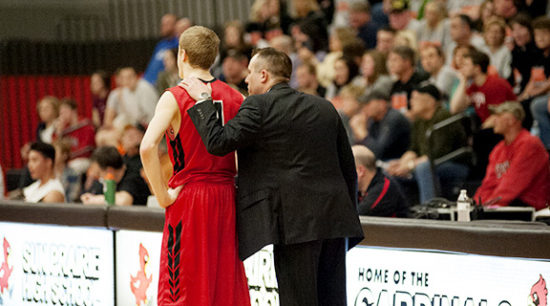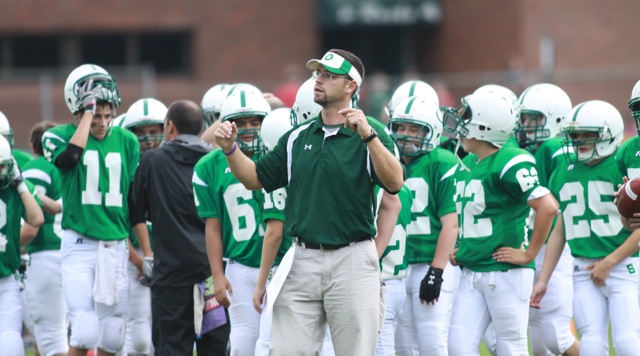Critiquing athletes without crushing their spirit
It happens to all of us. We say one thing, and our team hears another thing altogether. Here’s an example:
Me: Susie, if you take one more step and face your target, your pass will be right on the money.
 Susie hears: You’re a horrible volleyball player.
Susie hears: You’re a horrible volleyball player.
Me: Betsy, you’re on the right track, just be sure to communicate with your teammates so that they know what you’re going to do.
Betsy hears: Not only do I think you’re a horrible volleyball player, your teammates hate you too.
If either of those scenarios sound a little too familiar, take heart. People can react strongly to criticism no matter how it’s delivered. That being said, I’m sure none of us are trying to squash our team’s spirit like a proverbial bug.
Let’s look at a few ways for how we can critique without being critical.
Delivering negative feedback
1. Lead with questions. I may not always lead with a question, but somewhere in my feedback, I usually ask if they understand what I’m asking of them. The hard part about criticism is that it threatens that person’s membership in the group. So, asking questions shows them that they are part of a group effort. Something as simple as, “Do this; Does that make sense?” is a typical exchange in our gym.
2. Never give criticism unless it’s invited. In my mind, by virtue of being on a team, they’re inviting criticism. Turns out, I’m onto something. When we give feedback or advice, there’s a tacit agreement that praise and correction will be part of the exchange.
3. Make sure you are seen as having authority to give corrective feedback. Have you ever had a freshman give a senior some advice on how to perform a skill better? Even if their advice is great, the senior probably won’t receive it because the freshman has no authority. If you have one of those “helpful” freshmen, you should probably pull them aside and have a little chat with them.

4. Distinguish whether a demand reflects your needs or is a valid critique of what they’re doing wrong. I’ll be the first to admit that sometimes I want my team to do something because it’s my preferred method of operation. My general statement is, “There are a million ways to skin a cat. Either way, you end up with a cat without skin, so let’s try it my way.”
Yes, that’s an extreme example, but it gets the point across. I’m not saying that the student-athlete is doing something wrong. It’s just not the way I’d like them to do it.
5. Never give feedback when you’re angry. Easier said than done, right? If there’s someone on your team that drives you crazy, let them become your assistant’s pet project. I’ve even been known to tell my assistant to listen to my corrective statements during practice. Like, “Katie is working my last nerve today, please make sure that I’m not picking on her at practice.” Hopefully, this keeps Katie from being a puddle of tears in the locker room.
6. Know who you’re talking to. For some, criticism is a personal attack. For others, it causes them to lose all self-esteem. I’m constantly beating the “personality test” drum, and that’s because I think it’s a great way to find out how your team is motivated.
7. Know yourself. Personally, I’m less outwardly sensitive to criticism. Of course, it still stings, and I’d rather receive a steady stream of praise, but I like to receive my criticism without all of the frills. But everyone isn’t like me, and some people really need to hear the frills before they can process the criticism.
Knowing that others aren’t like me keeps me from completely crushing the more sensitive folks on my team.
8. Expect defensiveness. We tend to simplify the world by making it bipolar. So, when you don’t tell Susie she’s the most amazing player in the world, you’re saying she’s terrible.
The good news is that this is just the initial reaction, and you can expect a change in behavior to follow. You also can train your team about the proper response to your feedback. Do you want them to look you in the eye while you’re talking? Do you want them to respond with a “yes, coach.” Be sure to let them know.
A lot of our jobs as coaches is to figure out how to motivate our teams, and part of that comes from understanding how they read and react to your words. I hope this reminds us all about anticipating how our criticism is received by our players.
Dawn Redd is the head volleyball and assistant track & field coach at Beloit College in Wisconsin.





